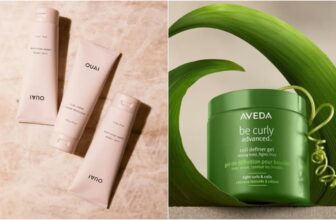What to Know About Using Peppermint Oil for Hair Growth
Peppermint oil is a popular essential oil that is often touted for its numerous health and wellness benefits, including its potential to promote hair growth.
Maintaining healthy hair is not just about the products you apply directly to your strands; it’s also about the nutrients you consume in your diet. This holistic approach emphasizes the importance of internal and external care for optimal hair health. Among various natural remedies, Peppermint oil is gaining popularity as a natural remedy for promoting hair growth and improving overall hair health.
Known for its cooling sensation and refreshing scent, peppermint oil has been shown to stimulate hair follicles, improve circulation to the scalp, and provide nourishment to the hair shaft. If you’re considering incorporating peppermint oil into your hair care routine, it’s important to understand how to use it properly and what to expect in terms of results.
As hair thrives on a diet rich in strengthening nutrients such as omega-3 fatty acids and biotin, these essential nutrients travel through the bloodstream to nourish the scalp. When hair follicles are well-supported by a vibrant network of blood flow, the overall health of your hair can be significantly enhanced.
Continue reading as we provide you with all the information you need to know about using peppermint oil for hair growth, including its benefits, risks, and tips for application.
What is Peppermint Oil?
Peppermint oil is a natural essential oil that is derived from the peppermint plant, scientifically known as Mentha piperita. It is widely used in various industries, including pharmaceuticals, cosmetics, and aromatherapy, due to its numerous therapeutic properties.
The main active component in peppermint oil is menthol, which provides a cooling sensation when applied to the skin and can help alleviate muscle aches and pains. Peppermint oil also has antibacterial, antiviral, and anti-inflammatory properties, making it a popular choice for treating skin conditions such as acne and eczema.
 Photo: Getty Images
Photo: Getty Images In aromatherapy, peppermint oil is often used to improve cognitive function and boost energy levels. It can also help relieve symptoms of respiratory conditions such as congestion and coughing when inhaled.
Overall, peppermint oil is a versatile and beneficial essential oil that can be used in a variety of ways to promote health and well-being.
Benefits of Peppermint Oil for Hair Growth
When it comes to hair care, peppermint oil has been gaining popularity for its numerous benefits in promoting hair growth. Extracted from the leaves of the peppermint plant, this essential oil is known for its soothing and cooling properties, making it an ideal ingredient for stimulating hair follicles and promoting healthy scalp conditions.
When applied to the scalp, peppermint oil can increase blood circulation, which in turn promotes hair growth. The menthol in peppermint oil has a tingling effect on the scalp, which can help improve circulation and encourage hair follicles to produce new strands of hair. This essential oil for hair care also has antimicrobial properties that can help reduce dandruff and other scalp conditions that may inhibit hair growth.
According to Dr. Martin N. Zaiac, a board-certified dermatologist, while research on peppermint oil’s efficacy remains somewhat limited, there is compelling evidence suggesting that peppermint oil benefits hair growth. “Peppermint oil is thought to benefit the scalp by improving blood circulation to the hair follicles when massaged into the area,” he explains. Improved blood circulation means hair follicles receive increased nourishment, which can lead to stronger hair, improved texture, and enhanced growth.
 Photo: Getty Images
Photo: Getty Images One major advantage of using peppermint oil is its ability to promote scalp health. “Peppermint oil also has antimicrobial and anti-inflammatory properties,” says Dr. Marisa Garshick, another board-certified dermatologist. These properties play a pivotal role in reducing common scalp issues, such as dandruff and dryness. A healthier scalp contributes to better hair growth conditions, allowing for a thriving environment where hair follicles can flourish.
How to Properly Use Peppermint Oil for Hair Growth
Peppermint oil is a popular essential oil known for its numerous benefits, including promoting hair growth. When properly used, peppermint oil can help stimulate hair follicles, improve circulation to the scalp, and nourish the hair for healthier growth. Here are some key steps to properly use peppermint oil for hair growth:
-
Dilute the oil:
Peppermint oil is highly concentrated, so it is important to dilute it with a carrier oil like coconut, olive, or jojoba oil before applying it to your scalp. Mix a few drops of peppermint oil with a tablespoon of carrier oil to avoid skin irritation.
-
Perform a patch test:
Before applying peppermint oil to your scalp, perform a patch test on a small area of skin to check for any adverse reactions or sensitivities.
-
Massage into the scalp:
Using your fingertips, gently massage the diluted peppermint oil into your scalp, focusing on areas where you want to promote hair growth. The massaging action will help improve circulation and ensure the oil is absorbed properly.
-
Leave on overnight:
For best results, leave the oil on your scalp overnight to allow it to work its magic. Cover your hair with a shower cap or towel to prevent any oil from transferring to your pillow.
-
Wash out the next morning:
In the morning, shampoo your hair as usual to rinse out the peppermint oil. You may need to shampoo twice to remove the oil and avoid any residue completely.
By following these steps and incorporating peppermint oil into your hair care routine, you can take advantage of its hair growth benefits and enjoy healthier, stronger hair.
Potential risks and precautions
It is important to be aware of potential side effects and precautions when using peppermint oil. While peppermint oil is generally safe for most people when used properly, there are some individuals who may experience adverse reactions.
 Photo: Getty Images
Photo: Getty Images Some potential side effects of peppermint oil include skin irritation, allergic reactions, and heartburn. It is important to perform a patch test on a small area of skin before using peppermint oil topically and to dilute it with carrier oil to reduce the risk of irritation.
Additionally, peppermint oil should not be ingested in large quantities, as it can cause digestive issues such as heartburn and nausea. It is also not recommended for use in children under the age of 5, as it can cause breathing difficulties.
If you are pregnant, nursing, or have any underlying health conditions, it is always best to consult with a healthcare professional before using peppermint oil. It is also important to store peppermint oil in a cool, dark place away from children and pets to prevent accidental ingestion.
Photo: Getty Images
You May Also Like:
Beyonce Debuts Chic Blonde Bob After Months Off Social Media
February 13, 2026Cardi B is Launching Her Own Hair Brand — Grow-Good Beauty
February 11, 2026Selena Gomez Shows Off Her Fresh New Haircut That Is Worth Copying
January 23, 20269 Best Gels For Curly Hair To Define Your Curls
January 22, 202613 Biggest Hair Trends To Define 2026
January 8, 2026How Yogurt Benefits Your Hair and How to Use It Properly
January 5, 202615 Chic Braided Bob Hairstyles to Try for a Confident Look
December 23, 20255 Ways Honey Can Transform Your Hair Routine Naturally
December 22, 202515 Festive Holiday Hairstyle Ideas That Will See You Through The Season
December 10, 2025How to Maintain Natural Hair Moisture During The Festive Season
December 9, 2025Kim Kardashian Expands Skims Into Hair Care With New Tangle Teezer and Slip Collabs
December 2, 2025How To Protect Your Natural Hair Under Wigs
December 1, 2025Esther Ejoh is a Fashion Editor at Fashion Police Nigeria, where she writes all things fashion, beauty, and celebrity style, with a sharp eye and an even sharper pen. She’s the girl who’ll break down a Met Gala look one minute, rave about a Nigerian beauty brand the next, and still find time to binge a movie or get lost in a novel. Style, storytelling, and self-care? That’s her holy trinity.





